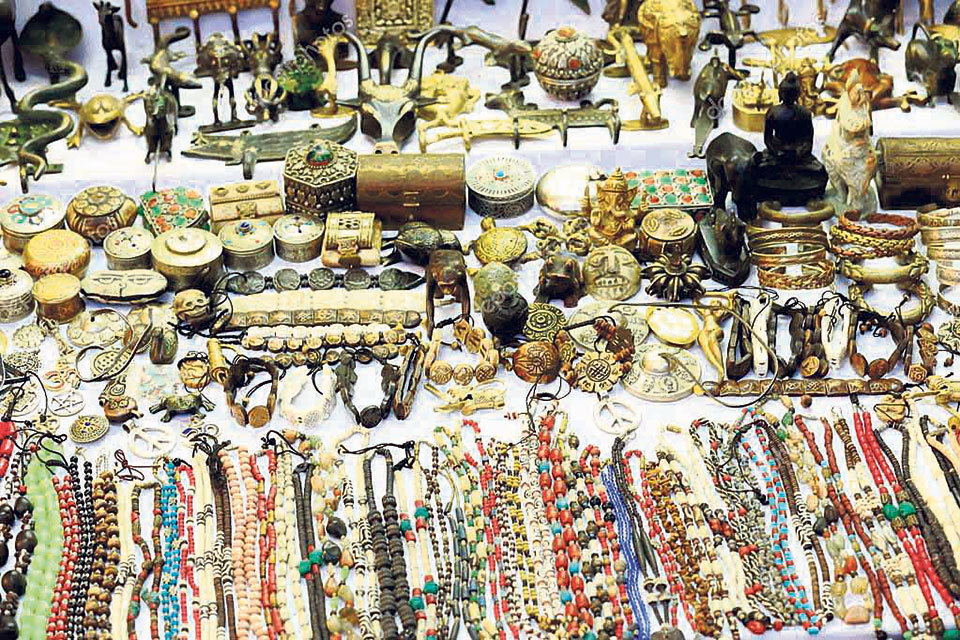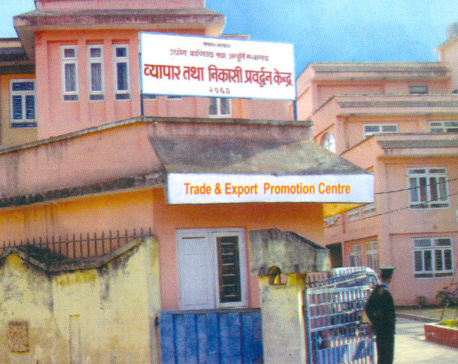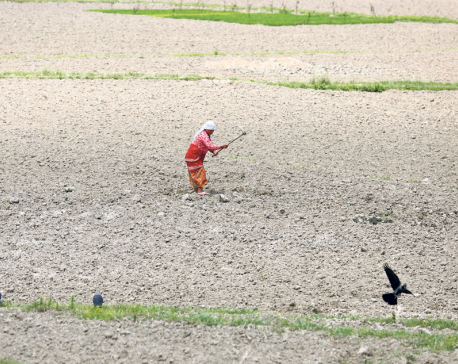
OR
Traders call for quality assurance to promote Nepali handicraft
Published On: December 15, 2019 09:49 AM NPT By: Republica | @RepublicaNepal

KATHMANDU, Dec 15: Nepali handicraft, one of the main export items of the country, has never really picked up due to failure of maintaining quality assurance in the international market, traders said on Saturday.
Speaking at the 47th anniversary event of the Federation of Handicraft Associations of Nepal (FHAN), traders sought government initiation to install an internationally-accredited laboratory in the country and to promote collective trademark of Nepali handmade goods.
"Lack of quality assurance of locally produced goods has been hindering the desired growth in the business of the products abroad," FHAN president Surendra Bhai Shakya said.
The government has listed a number of handicraft products as high export-potential items in the Nepal Trade Integration Strategy 2016. Under an ambitious plan to boost the exportable products including Nepali handicraft, the government has aimed to install an internationally accredited laboratory by 2020. "However, no progress has been observed along this line in more than three years of its implementation," said Shakya.
Nepali handicraft has been one of the major sources of export earnings for the country. According to the federation, Nepal exports handicraft worth more than Rs 10 billion every year.
The country exports products made with allo, beads, animal bones and horns, ceramics, cotton items, dhaka, felt, glass, incense, metal craft, textile, paper, plastic, silk, stone, and woolen products in significant amounts. Likewise, products made with bamboo, crystal, hemp, leather, paintings, pashmina, silver, and wood also come under the country's major handmade products doing good business abroad.
However, these products have ever been struggling to expand their market due to a number of reasons, including high prices, traditional designs, and issue of quality maintenance. According to the federation, Nepali handicraft products are relatively more expensive due to high cost of production compared to Indian and Chinese products.
Currently, the government provides a five percent cash incentive to handicraft exporters. However, traders have to face cumbersome procedures to receive the incentive amount from the government. Shakya also demanded the government to raise the incentive rate to double digits to reduce the production cost of the handicraft items.
The FHAN also sought the government support in installing handicraft villages in all seven provinces in order to facilitate quality production of Nepali handicraft. Traders also asked the government to make necessary arrangements to issue fumigation certificates for the export of handmade products.
You May Like This

Nepal exported electricity worth nearly Rs 2 billion to India in first month of FY 2022/23; plan to export an additional 111 MW
KATHMANDU, August 21: Electricity worth nearly Rs 2 billion has been exported to India in the first month of the... Read More...

Exports of high potential products saw massive decline in FY 2019/20
KATHMANDU, Aug 28: Export earnings from goods identified by the Nepal Trade Integration Strategy (NTIS) 2016 as having high export potential... Read More...

Lack of irrigation infrastructure holding back export potential
DHANGADHI, July 1: Around two-thirds of the arable land in Province 7 does not have irrigation facilities. The other problems... Read More...




Just In
- Govt receives 1,658 proposals for startup loans; Minimum of 50 points required for eligibility
- Unified Socialist leader Sodari appointed Sudurpaschim CM
- One Nepali dies in UAE flood
- Madhesh Province CM Yadav expands cabinet
- 12-hour OPD service at Damauli Hospital from Thursday
- Lawmaker Dr Sharma provides Rs 2 million to children's hospital
- BFIs' lending to private sector increases by only 4.3 percent to Rs 5.087 trillion in first eight months of current FY
- NEPSE nosedives 19.56 points; daily turnover falls to Rs 2.09 billion















Leave A Comment